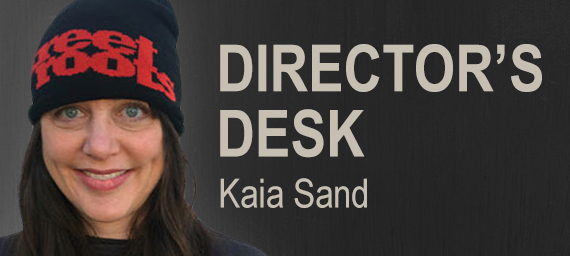“In our fragile and crowded world we can survive only together,” said Archbishop Desmond Tutu, who died Dec. 25 at 90 in Cape Town, South Africa.
The great South African leader fought to bring down the apartheid system — and then confront the damage of its aftermath, as well as other struggles internationally.
He spoke and wrote frequently of humanity as interdependent, as experienced through relationship, urging humans to see ourselves as “bound up with others in the bundle of life,” as he wrote in a forward to the book “Dignity: In Honor of the Rights of Indigenous People.”
“The profound truth is you cannot be human on your own,” Tutu said during his 2013 acceptance of the Templeton Prize. “You are human through relationship.”
The year 2022 will be a transformational time for what it means to be together; in community.
There’s much to learn ahead.
We are almost two years into living with a virus that has spread through that “fragile and crowded world.” We can kill each other through our breath. And yet that gives us a new opportunity to consider what it means to care for each other, and to be fully human only through how we relate to each other.
We are learning that it is through how we treat our own bodies – masks, vaccines – that we can better treat each other. And at the same time, as some of us challenge those concepts, digging heels in, my most hopeful self sees this as an opportunity to learn more about the society we live in. Why do we struggle to take care of each other in so many ways?
Among the million people in the Portland metro area, it’s difficult to see all the ways people suffer, but the suffering of people who live without homes is visible. This is shared knowledge.
I hear people voice their exhaustion at how intractable homelessness seems, some lashing out at the people experiencing it. The endurance of human suffering taps into a pulsing impatience for quick fixes, many of which are simply a mirage, or even damaging.
Other quick fixes — that triage of care — are beautiful and necessary. As the snow falls and ice grips the pavement, outreach workers and mutual aid neighbors hike out to tents, and people sign up for shelter shifts. People rise to these immediate challenges.
And yet, the deeper suffering endures, so our collective commitment needs to endure.
These are hard times, but they also can be transformational times. Many people are assessing their own lives — the jobs they work, the place they live. We can learn from our late elder, Archbishop Tutu, that because our lives are bound up in each other, those transformations include each other.
The coronavirus forces a new view on the interdependence of society. We take care of each other by giving each other more space, clear of shared breath and yet, somehow, we need to be even more together.
Perhaps it’s about backing up a little, recognizing how, like our breath, our actions, impact each other.
If I back up, I can see your face, and be astonished by it.
My humanity is bound up in yours “in the bundle of life”: I love this expression of Archbishop Tutu’s because he gives a sense of being swaddled together, of releasing ourselves to a greater sense of care.
It’s for that bundle of life, then, that we must share, and not hoard. It is for that bundle of life that we each grapple with how we harm each other, interdependent as we are. It is for that bundle of life that we cannot, in fact, give up on each other.


